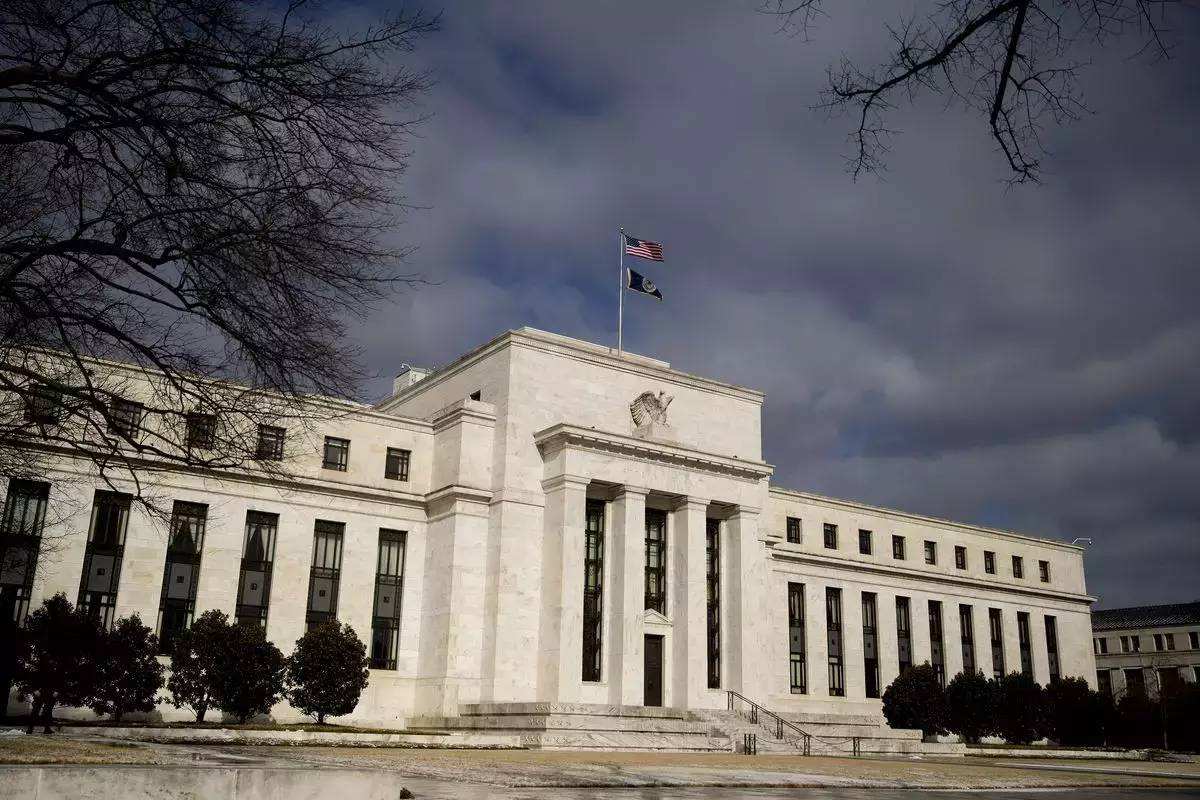
On July 22, 2025, the Federal Reserve released a dovish signal beyond expectations after the FOMC meeting, announcing a 25 basis point reduction in the target range for the federal funds rate to 5.00% -5.25%, and hinted at the possibility of two more rate cuts within the year. This decision instantly ignited global markets: the S&P 500 index surged 3.4% in a single day, the Nasdaq Composite Index surged 4.2%, and tech giants such as Tesla and Nvidia rose over 6%. The Dow Jones Industrial Average has broken through a historical high of 43000 points. The 10-year US Treasury yield fell 12 basis points to 3.85%, and the spread with the 2-year yield widened to -15 basis points, indicating that market concerns about an economic recession are heating up. COMEX gold futures rose 2.1% to $2020 per ounce, while WTI crude oil futures fell 3.8% to $73.5 per barrel, reflecting market divergence on demand prospects.
Federal Reserve Chairman Powell emphasized at a press conference that this interest rate cut is a "precautionary adjustment," but acknowledged that "trade policy uncertainty poses significant risks to the economy. The market generally interprets that the Federal Reserve has officially entered a cycle of interest rate cuts. According to the Chicago Mercantile Exchange's FedWatch tool, the probability of another 25 basis point rate cut in September has skyrocketed to 82%.
On the same day that the Federal Reserve cut interest rates, the Trump administration announced a 45% tariff on China, involving strategic industries such as semiconductors, electric vehicles, and rare earths, with a total scale of $300 billion. This measure immediately triggered a chain reaction: China quickly introduced countermeasures: the Chinese Ministry of Commerce announced a 25% tariff on imported soybeans and corn from the United States, and suspended the import permits of two American companies for rare earths, targeting Trump's political stronghold.
The German DAX index fell 2.3%, the Nikkei 225 index plummeted 3.1%, and the South Korean Composite Index triggered a circuit breaker mechanism. Apple urgently transfers some iPhone production lines to Vietnam, while Tesla announces the construction of its third Gigafactory in Mexico, marking the fast lane of global industrial chain restructuring.
This week marks the peak of the US stock market earnings season, with tech giants showing increasing differentiation: Microsoft's Azure cloud business grew by 28% year-on-year, but AI related capital expenditures reached $12 billion, raising questions in the market about the sustainability of the "burning money model". Google: Search advertising revenue grows by 12%, but YouTube's short video business losses expand to $800 million, showing a tug of war between traditional and emerging businesses. Amazon: AWS cloud service growth slows to 15%, while retail business profit margin drops by 2 percentage points due to rising tariff costs.
The latest data from the US Treasury Department shows that the federal government debt has exceeded $36 trillion, a surge of $1.2 trillion from the end of 2024. Even more concerning is that as the Federal Reserve cuts interest rates, the United States will face a "debt interest avalanche": interest spending has reached a new high: in the first nine months of fiscal year 2025, federal government interest spending has reached $820 billion, a year-on-year increase of 23%, equivalent to paying $2.25 billion in interest every day. The Congressional Budget Office (CBO) has warned that if the debt ceiling is not raised, the government may face default risks in November. But the Republican Party has explicitly used the debt ceiling as a bargaining chip, demanding cuts to social security and healthcare spending. Global central banks sold off US bonds, Japan reduced its holdings of US bonds by $30.4 billion in May, China reduced its holdings for the seventh consecutive month, and the proportion of official institutions holding US bonds worldwide dropped to 23%, a new low since 1995.
The US economy is at a crossroads: the Federal Reserve is cutting interest rates in an attempt to save growth, while Trump's tariffs are exacerbating the risk of recession; The technology stock foam is disconnected from the real economy, and the debt crisis is like the sword of Damocles hanging high. In this economic storm, there are no real winners. When policy uncertainty becomes the norm and financial capital and industrial capital accelerate their decoupling, whether the US economy can find a new balance amidst turbulence will become a key variable determining the fate of the world.

報告顯示,中國電力投資加速增長,預計2024年電網基建投資將超過5300億元。
近日,市場迎來了一則引人注目的消息:工業巨頭3M公司(MMM.N)在本周五公布了其季度業績報告,隨後股價飆升至近兩年來的
最近,外媒給OpenAI算了筆賬,今年可能要血虧50億美元。
近日,巴黎奧運會和世界鐵人三項協會聯合發布了一項重大決定,宣布因塞納河水質污染問題,原定於近期進行的奧運會鐵人三項首次下
當地時間7月18日,法國巴黎發生了一起令人震驚的持刀襲警事件。
近期,一則重大消息在國際舞臺上引起軒然大波,馬來西亞宣布加入金磚國家。
調查發現,互聯網和智能手機的使用幹擾了韓國近五分之一學生的生活。